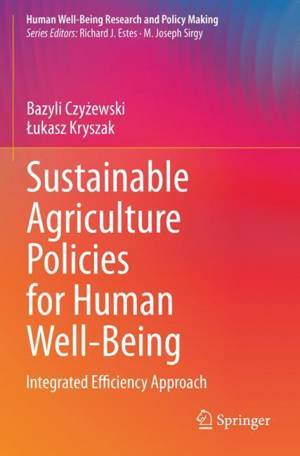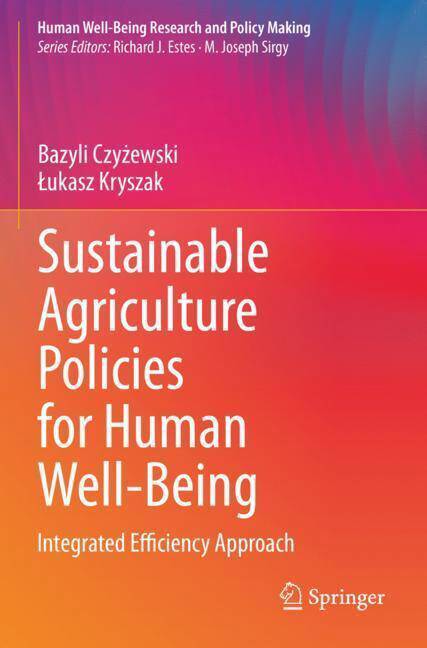
- Retrait gratuit dans votre magasin Club
- 7.000.000 titres dans notre catalogue
- Payer en toute sécurité
- Toujours un magasin près de chez vous
- Retrait gratuit dans votre magasin Club
- 7.000.0000 titres dans notre catalogue
- Payer en toute sécurité
- Toujours un magasin près de chez vous
Sustainable Agriculture Policies for Human Well-Being
Integrated Efficiency Approach
Bazyli Czyżewski, Lukasz KryszakDescription
This book deals with the important topic of policies for sustainable agriculture, since food insecurity is a growing concern for policy makers and will affect the quality of life and well-being of generations to come. The authors provide a theoretical background to the concept of sustainable agriculture including its recent developments; monitor the current state of sustainability in agriculture in different regions of the world; and evaluate current agricultural policies to propose new solutions. They show practical ways of sustainability measurement that could be applied to different regions. The book takes into account sustainability indicators based on economic, social and environmental aspects and discusses the trade-offs between these three dimensions. It also answers the question of whether current agricultural policies contribute to balancing between the goals of agriculture---that of not just providing food but of contributing to the greater good---and how policies differ and have evolved across the world. Finally, it puts together the best practices of sustainability for the use of policymakers. The book pays particular attention to least developed countries where hunger and malnutrition are high, but where productivity should not come at the expense of environmental and social goals.
This book is of use to a wide readership of policy makers, professionals and academics in the social and environmental sciences interested in the improvement of human life through sustainable agricultural policy implementation.
Spécifications
Parties prenantes
- Auteur(s) :
- Editeur:
Contenu
- Nombre de pages :
- 256
- Langue:
- Anglais
- Collection :
Caractéristiques
- EAN:
- 9783031097980
- Date de parution :
- 29-09-23
- Format:
- Livre broché
- Format numérique:
- Trade paperback (VS)
- Dimensions :
- 156 mm x 234 mm
- Poids :
- 385 g

Les avis
Nous publions uniquement les avis qui respectent les conditions requises. Consultez nos conditions pour les avis.






